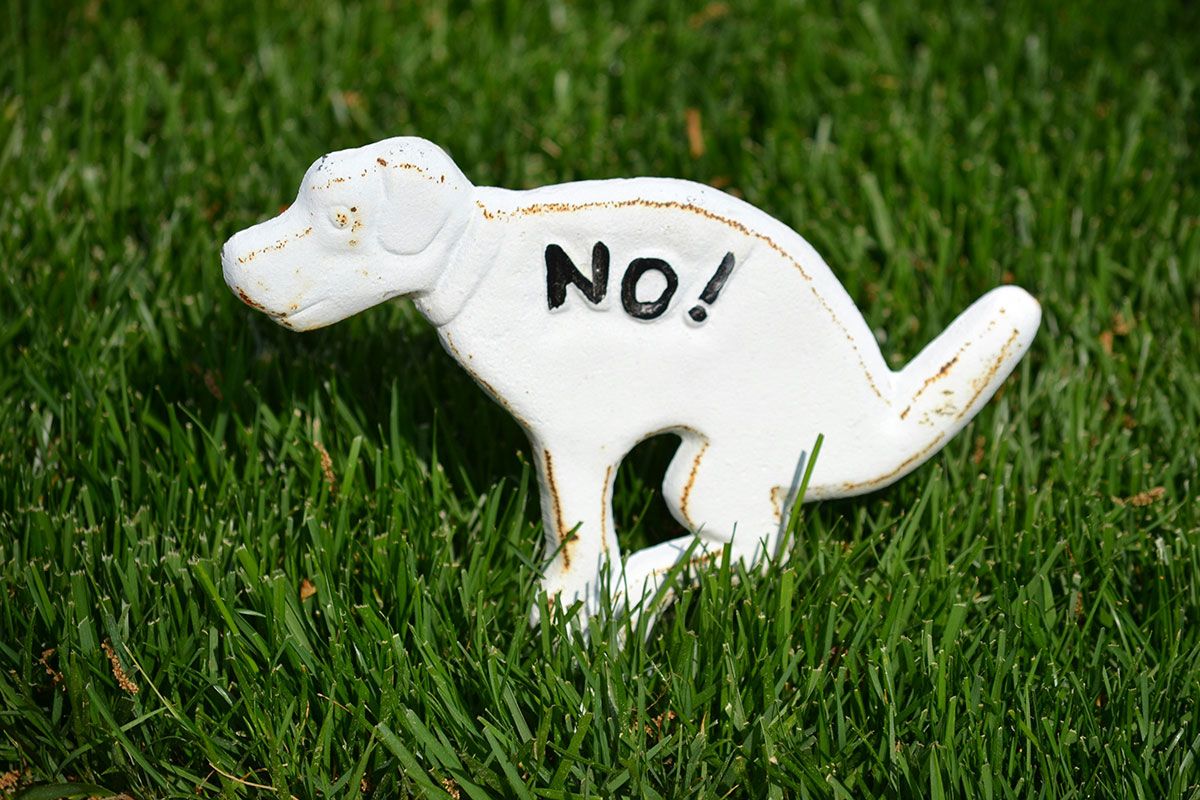Debunking Common Myths About Dog Waste: What Every Essex Homeowner Needs to Know
Imagine a crisp Saturday morning in Essex. You’re strolling through your garden, enjoying a coffee, when – squish – your foot finds the one spot you missed. “It’s just dog poop; it’ll decompose naturally, right?” you might think. Or perhaps, “It’s gross, but harmless.” You’re not alone—many dog owners believe these myths. However, while dog waste might seem like a minor nuisance, it’s more than just an inconvenient garden feature.
We’re looking to clear up some common misconceptions about dog waste and how it affects your garden, health, and the environment. From potential health risks to the surprising longevity of dog poo in the soil, we’re uncovering the truth. At Poop Patrol, we understand the hassle of regular clean-up and the confusion around what’s true and what isn’t. Let’s dive in and uncover some dog poop myths.

Myth #1: Dog Poop is “Natural” and Harmless to the Environment
One of the biggest misconceptions is that dog waste is “natural” and will break down quickly in the soil. However, unlike waste from wild animals, dog poo has a different makeup due to their diets. The high protein content in a dog’s diet often leaves waste high in nitrogen, which can be harmful to plants and grass. Dog waste ranks as a serious environmental pollutant, joining categories like herbicides and pesticides.
In fact, dog waste can take up to a year to fully decompose, especially in cold or shaded areas. While it may eventually break down, during this time, it can leach bacteria and parasites into the soil. Studies indicate that a single gram of dog poop can contain up to 23 million faecal coliform bacteria, which can easily seep into water sources and contaminate local rivers and lakes (Centers for Disease Control and Prevention, 2019).
Myth #2: Dog Waste Isn’t a Health Hazard
Many homeowners think dog waste is merely unpleasant to look at but not particularly harmful. Unfortunately, dog poop poses real health risks for both humans and pets. It can harbour pathogens like E. coli, salmonella, and various parasites, including roundworms and hookworms. These organisms can live in the soil long after the waste itself has decomposed, creating a persistent health risk.
Children who play in the garden are particularly vulnerable since they may come into contact with contaminated soil. An American survey by the CDC found that pet waste can be a contributing factor to nearly 20% of reported cases of bacterial infections transmitted from animals to humans in urban environments (CDC, 2020).
Myth #3: Leaving Dog Waste in the Yard Will Fertilise the Grass
Some people believe that dog faeces acts like fertiliser, helping plants and grass grow. While cow manure may be used in some fertilisers, dog waste is very different and can actually be detrimental to your yard. The high nitrogen and acidic levels in dog waste can burn the grass, creating yellow and dead patches. If you’ve noticed certain parts of your lawn look worse after dog poop exposure, this is likely why.
In Essex, where many gardens are limited in size, maintaining a clean and vibrant garden can be challenging enough without the added strain of nitrogen-heavy pet waste. Poop Patrol provides reliable waste removal, ensuring that you can keep your lawn healthy without the worry of poop damage.
Myth #4: Dog Waste Removal Services are Only for Busy or Elderly People
It’s a common misconception that hiring a professional dog waste removal service is only for those who are physically unable to clean up after their pets. But the reality is that anyone with a busy schedule or a desire for a cleaner garden can benefit. Dog poop removal services save you time, reduce stress, and create a cleaner environment for both pets and humans.
In North Essex and South Suffolk, Poop Patrol offers flexible waste removal plans that suit different needs and schedules, making it easier for homeowners to stay on top of this often-overlooked task.
Myth #5: Dog Poop Disposal is Easy and Doesn’t Need Special Handling
Many people think that simply tossing dog waste in the trash is all that’s needed, but in some areas, dog waste must be disposed of carefully to avoid environmental harm. Dog waste can contaminate waterways if not handled properly. According to Government sources, pet waste is among one of the primary sources of pollution in water runoff, which can contribute to harmful algae blooms and disrupt local ecosystems.
Even when disposed of correctly, dog waste requires regular removal to avoid build-up and potential contamination. Professional services like Poop Patrol are equipped to handle dog poo properly, ensuring that your garden remains safe and that waste disposal complies with local regulations.
Contact Us
Dog poo might seem like an unimportant part of pet ownership, but it’s crucial to understand the potential risks and misunderstandings surrounding it. From health hazards to environmental impact, these myths can lead us to overlook the importance of regular, safe clean-up. By dispelling these misconceptions, we can better protect our families, pets, and the local environment.
So next time you’re in the garden, enjoying the clean air, ask yourself: could your yard benefit from a little extra help in keeping it truly clean? If you think that Poop Patrol could help you out, simply give us a call on 0800 148 8088 or complete the form below: